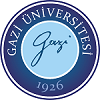
Send us your opinions, requests and evaluations.
Raising individuals in line with the core values of our university; To contribute to the solution of social problems and the lifelong learning process by producing ideas, knowledge, science, technology and services at a universal level through research.
Vision
To be an entrepreneurial and pioneering university in science, technology and art at the international level.
Basic values
Gazi University, with the honor of hosting the first educational institution that trained the pioneer teachers of the Republic and the responsibility of being a research university;
►Pioner in Education and Research
High academic quality that encourages the desire for learning and research that contributes to universal science and the formation of national culture,
►Quality Oriented
In accordance with the corporate culture; To continue continuous improvement activities in the fields of education, research and social service according to the needs and requirements of the age,
►Participant
To carry out corporate decision-making processes by ensuring internal and external stakeholder participation,
►Environmentally Friendly
To pay attention to the protection and improvement of the environment while developing and offering products and services,
►Inquiring and Innovative
Seeking originality in science; An inquisitive, critical, innovative contemporary approach that will serve the needs of society and humanity in developments in research, education and technology,
►Responsible Towards People and Society
Centering on embracing national values, all kinds of views and thoughts can be expressed in peace and tolerance; a universal approach that sees differences as richness and opposes all kinds of discrimination;
To offer the information, technology and services produced for the benefit of society through internal and external stakeholders,
►Committed to Merit and Ethical Values
To center universal, scientific, academic and professional ethical values;
To glorify success, talent, work and effort; To carry out selection and evaluations on the basis of competencies and considering objectivity,
►High Corporate Affiliation
To be an institution that we are proud to be a member of and that can bear the responsibility of this,
►Dependent on History and Culture
To have a sensitive approach towards historical, cultural, national and spiritual values,
►Aware of Regional and Global Responsibilities
With its units and human resources, it adopts being sensitive to the physical, economic, strategic and social conditions of the country, nearby geography and world problems and being able to produce solutions as its basic values.
Mission:
To train engineers with high application skills who design and analyze in line with the principles and principles of Electrical and Electronics Engineering, work in close cooperation with the sector, and adhere to their corporate and ethical values.
Vision:
To be a pioneering department that contributes to the field of Electrical and Electronics Engineering at national and international levels with an innovative, investigative and practical approach.
Department of Electrical and Electronics Engineering Program Educational Objectives:
Department of Electrical and Electronics Engineering undergraduate program; It is structured to provide its graduates with high-quality knowledge and skills. Program graduates can successfully take part in the activities listed below in the near future.
I. They work as engineers or managers in R&D, testing, production, planning and marketing units in academia, industry, public institutions and private organizations, related to the field of duty of Electrical and Electronics Engineering.
II. They can engage in entrepreneurial activities in the field of Electrical and Electronics Engineering and establish their own businesses or become partners in existing businesses.
III. They continue postgraduate studies in Electrical and Electronics Engineering or interdisciplinary fields at home or abroad.
IV. They improve themselves through lifelong learning activities.
MÜDEK OUTPUTS
1. Engineering Knowledge: Knowledge of mathematics, science, basic engineering, computer computing and subjects specific to the relevant engineering discipline; Ability to use this information in solving complex engineering problems.
2. Problem Analysis: The ability to define, formulate and analyze complex engineering problems using basic science, mathematics and engineering knowledge and taking into account the UN Sustainable Development Goals* relevant to the problem under consideration.
3. Engineering Design: Ability to design creative solutions to complex engineering problems; The ability to design complex systems, processes, devices or products to meet current and future requirements, taking into account realistic constraints and conditions*.
4. Use of Techniques and Tools: The ability to select and use appropriate techniques, resources and modern engineering and informatics tools, including estimation and modeling, for the analysis and solution of complex engineering problems, while being aware of their limitations.
5. Research and Investigation: Ability to use research methods to examine complex engineering problems, including researching literature, designing experiments, conducting experiments, collecting data, analyzing and interpreting results.
6. Global Impact of Engineering Practices: Information about the effects of engineering practices on society, health and safety, economy, sustainability and environment within the scope of the UN Sustainable Development Goals*; Awareness of the legal consequences of engineering solutions.
7. Ethical Behavior: Acting in accordance with engineering professional principles*, knowledge about ethical responsibility; Awareness of acting impartially, without discrimination on any issue, and being inclusive of diversity
8. Individual and Team Work: Ability to work effectively individually and as a team member or leader in intradisciplinary and multidisciplinary teams (face-to-face, remote or hybrid).
9. Oral and Written Communication: The ability to communicate effectively verbally and in writing on technical issues, taking into account the various differences of the target audience (such as education, language, profession).
10. Project Management: Knowledge of business practices such as project management and economic feasibility analysis; awareness about entrepreneurship and innovation.
11. Lifelong Learning: Lifelong learning skill that includes being able to learn independently and continuously, adapting to new and developing technologies, and thinking inquisitively about technological changes.

Send us your opinions, requests and evaluations.